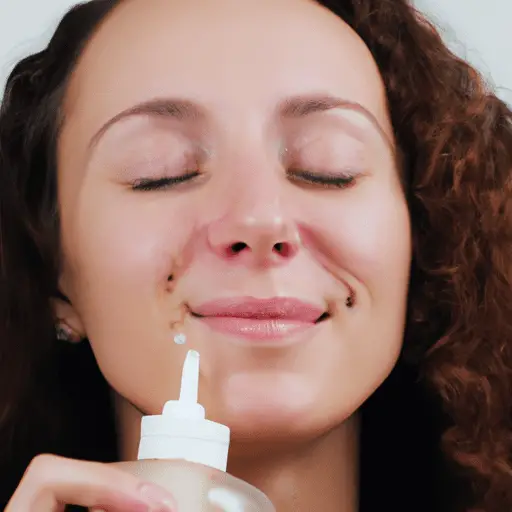-
Table of Contents
- How to Fade Hyperpigmentation: A Comprehensive Guide
- Key Takeaways
- Understanding Hyperpigmentation
- Effective Ways to Fade Hyperpigmentation
- Topical Treatments
- Laser Therapy
- Chemical Peels
- Preventing Hyperpigmentation
- FAQ Section
- 1. Can hyperpigmentation be completely cured?
- 2. How long does it take to fade hyperpigmentation?
- 3. Can I treat hyperpigmentation at home?
- 4. Does diet affect hyperpigmentation?
- 5. Can hyperpigmentation return after treatment?
- Conclusion: Fading Hyperpigmentation Requires Patience and Consistency
- Further Analysis
How to Fade Hyperpigmentation: A Comprehensive Guide

[youtubomatic_search]
Key Takeaways
- Hyperpigmentation is a common skin condition that can be faded with the right skincare routine and treatments.
- Topical treatments, laser therapy, and chemical peels are some of the most effective methods to fade hyperpigmentation.
- Prevention is key in managing hyperpigmentation, which includes protecting your skin from the sun and maintaining a healthy lifestyle.
- Consulting a dermatologist is crucial to determine the best treatment for your specific type of hyperpigmentation.
- Patience and consistency are essential as fading hyperpigmentation can take time.
Understanding Hyperpigmentation
Hyperpigmentation is a common skin condition characterized by dark patches on the skin. It occurs when the skin produces more melanin, the pigment that gives skin its color. This can be triggered by various factors such as sun exposure, hormonal changes, age, and skin injuries or inflammation.
Effective Ways to Fade Hyperpigmentation
While hyperpigmentation is usually harmless, it can cause distress to those who have it due to its appearance. The good news is, there are several ways to fade hyperpigmentation:
Topical Treatments
Topical treatments are the first line of defense against hyperpigmentation. These include creams, lotions, and serums that contain active ingredients such as hydroquinone, retinoids, vitamin C, and azelaic acid. These ingredients work by inhibiting the production of melanin, thereby lightening the dark patches.
Laser Therapy
Laser therapy is another effective method to fade hyperpigmentation. It works by targeting the melanin in the skin with high-intensity light, breaking it down so that it can be naturally eliminated by the body.
Chemical Peels
Chemical peels involve the application of a chemical solution to the skin, causing it to exfoliate and eventually peel off. This process reveals a new layer of skin that is lighter and less pigmented.
Preventing Hyperpigmentation
Prevention is key in managing hyperpigmentation. This includes protecting your skin from the sun by wearing sunscreen, avoiding direct sun exposure, and wearing protective clothing. Maintaining a healthy lifestyle by eating a balanced diet, exercising regularly, and managing stress can also help prevent hyperpigmentation.
FAQ Section
1. Can hyperpigmentation be completely cured?
While hyperpigmentation can be significantly faded, it may not be completely cured. The effectiveness of the treatment depends on the severity and type of hyperpigmentation, as well as the individual’s skin type and overall health.
2. How long does it take to fade hyperpigmentation?
Fading hyperpigmentation can take time. It can take anywhere from a few months to a year or more, depending on the severity of the condition and the treatment used.
3. Can I treat hyperpigmentation at home?
Yes, there are several at-home treatments available for hyperpigmentation. However, it’s always best to consult a dermatologist before starting any new skincare routine or treatment.
4. Does diet affect hyperpigmentation?
Yes, diet can affect hyperpigmentation. A diet rich in antioxidants, vitamins, and minerals can help prevent and manage hyperpigmentation.
5. Can hyperpigmentation return after treatment?
Yes, hyperpigmentation can return after treatment, especially if the skin is exposed to the sun without protection or if the underlying cause is not addressed.
Conclusion: Fading Hyperpigmentation Requires Patience and Consistency
Fading hyperpigmentation is a process that requires patience and consistency. It involves a combination of treatments, a good skincare routine, and lifestyle changes. Consulting a dermatologist is crucial to determine the best treatment for your specific type of hyperpigmentation. Remember, prevention is key, and protecting your skin from the sun is one of the most effective ways to prevent hyperpigmentation.
[youtubomatic_search]
Further Analysis
In conclusion, hyperpigmentation is a common skin condition that can be effectively managed with the right treatments and skincare routine. The key takeaways from this article are:
- Hyperpigmentation can be faded with topical treatments, laser therapy, and chemical peels.
- Prevention is key in managing hyperpigmentation, which includes protecting your skin from the sun and maintaining a healthy lifestyle.
- Consulting a dermatologist is crucial to determine the best treatment for your specific type of hyperpigmentation.
- Patience and consistency are essential as fading hyperpigmentation can take time.

Leave a Reply